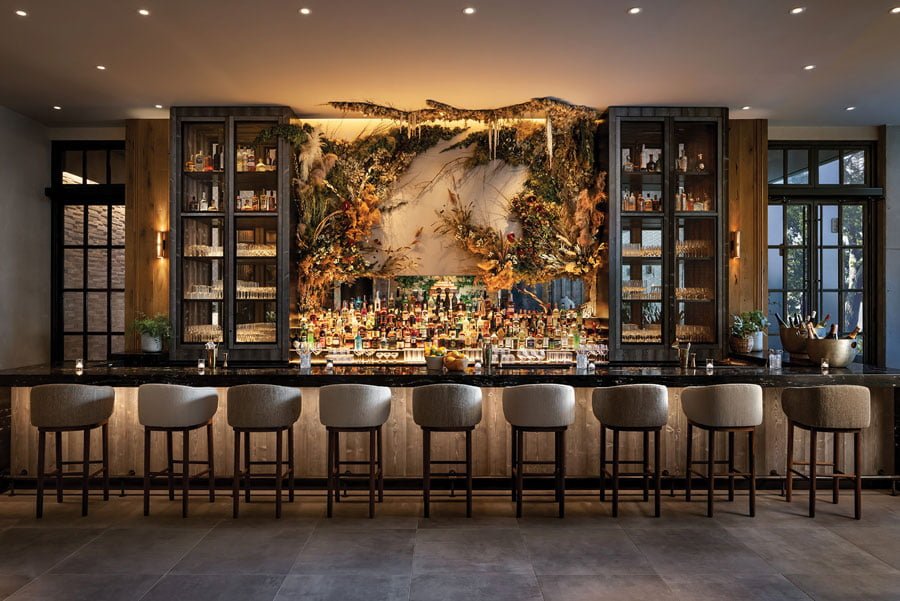Sustainability, Luxury, and the Modern Hotel
By DC Rutherford
Few entities define their cities like hotels. They are cultural and architectural landmarks through which we can trace our histories and mythology. The Chateau Laurier in Ottawa, host to kings, queens, and Karsh. The Queen Elizabeth Hotel in Montreal, in the centre of the city’s golden mile, where John and Yoko staged their 1969 bed-in. The Hotel Chelsea in Manhattan, venue for literary giants like Sam Shepard, Jack Kerouac, Mark Twain, and Tennessee Williams to craft their legacies. The Savoy in London, boasting stays by Oscar Wilde, Judy Garland, Marilyn Monroe, and the Beatles. These hallowed estates towered (often literally) over their cities, locations where their biographies were written, cultures refined, politics argued, and cityscapes defined. The hotels represented our dreams and our realities at once.
But, like their city hosts, hotels have evolved. In the age of Airbnb and budgeting, chain hotels and alternative lodging, hotels must now not just compete for the marketplace and aspire to cultural definition, but to social and societal leadership. It is from this evolution that 1 Hotel Toronto was born.


“Our vision for the hotel invites guests to celebrate Toronto’s ecology through materiality and locally made artwork,” declares Rockwell Group founder David Rockwell, whose company collaborated on the design.
As the world reckons with the challenges of climate change and globalization, the marketplace and industry are more attuned to the socioeconomic and environmental responsibility that their guests demand. So how do you balance opulence with ecology? 1 Hotel Toronto sees itself as a leader in this new-age philosophy, both aesthetically and in its common practices.
To enter into 1 Hotel Toronto is to arrive in the warm embrace of their sustainability mission. Guests are greeted on arrival to a reception desk and lobby lounge draped in the backdrop of an “Eramosa stone wall with wood-like striations, which was carved out of glacial activity along nearby Eramosa River.” The venue’s biophilic design – the practice of connecting people and nature within built environments and communities – was established “in collaboration with award-winning architecture and design firm Rockwell Group and project managed by The Athens Group, which specializes in the development of environmentally conscious upscale hospitality properties.”


Floor-to-ceiling windows illuminate both the interior’s eco-reverie and the city’s majesty. One hundred and twelve guest rooms feature panoramic views and luxury full-amenity suites. Organic linens, natural cotton robes, rainfall showers, and Bamford bath products populate each room with sustainable comfort and comforts. A water filtration system and tumblers and carafes “made from reclaimed wine bottles reduce the need for single-use plastics.” A unique touch of chalkboards in rooms eliminates the need for pads of paper and adds a sense of charm and familiarity, making each room feel like home – or the kind of modern and sustainable home you wished you lived in.
The hotel’s design is nature-based, inspired by Toronto’s unique four-season reality and lakeside setting. The planners worked in collaboration with International Landscaping in building the most eco-friendly and geographically attuned hotel the city has ever seen. Sharon Carlson, International Landscaping development designer, celebrates a unique feature in using “local granite from the Canadian Shield. And then also just incorporating that with some native plants, mindful of the urban context.” Over 3000 plants cultivated by International Landscaping can be found throughout 1 Hotel Toronto’s interior and exterior.


The establishment has committed itself to innumerable sustainability initiatives, such as zero waste through on-site composting, recycling all paper, plastic, glass, and hazardous waste, converting 100% of kitchen oil and grease into biofuel, and energy-efficient heating and cooling systems. Both 1 Hotel Toronto and International Landscaping “worked with local vendors and artists” in maintaining their mission, notes Carlson, including local woodworking studio Just Be Woodsy, who repurposed fallen Toronto trees into unique hand-crafted furnishings such as dining tables, grazing boards, host desks and side tables.
The attention to community and ecological concerns at 1 Hotel Toronto is seemingly endless. Using existing structures and infrastructure left over from the location’s Thompson Hotel days was key to maintaining the integrity of the project’s mandate. “There was an existing structure that was underutilized at the pavilion by a reflecting pond,” says Carlson. “We transformed that into a functional garden for the restaurant that uses different herbs, some fruit, flowering plants, and actually grows for the venue. Just having that opportunity to have that tactile experience for some of the chefs, to come out and have that harvest and grow some of the items onsite, is a unique experience.”



The garden pavilion, which also boasts a “bee hotel” to increase pollination from local bees (plus a honey farm designed by Montreal apiarists Alvéole), supplies all on-property restaurants with herbs, fruits, lettuces, edible flowers, peppers, onions, and beans; and aspires to a larger contribution to the fare that makes its way to guests’ plates, in-room or at one of their dining options: 1 Kitchen Toronto, Flora Lounge, Casa Madera and Harriet’s Toronto. Each kitchen’s team is well-versed in eco-practices and maintains intimate relationships with local farmers to ensure farm-to-table offerings at their best while supporting their community.
All dining options at 1 Hotel Toronto offer distinctive plates, in the accommodation’s tradition of locality and sustainability, each with its own twist on the mission and with menus culled from the garden pavilion and local farmers and suppliers. 1 Kitchen Toronto’s “goal is to create an experience as close to dining by a farm or coastline in downtown Toronto with direct relationships to its beloved purveyors from the land and sea. The menu is produce-led, peppered with artful pickling, fermenting, and smoking.” Be careful not to salivate on the elmwood! Flora Lounge, the hotel’s lobby bar, prides itself on Ontario delicacies and ingredients found no further than 100 kilometres from the venue. The soon-to-open Casa Madera will offer a fine dining option, blending Mexican and Mediterranean influences led by Chef Olivier Le Calvez and his 25 years of experience “strongly influenced by his native country, as well as European, Asian, and Latin American techniques.”


The crown jewel atop 1 Hotel Toronto is Harriet’s Toronto (adjoining the rooftop pool), indeed a singular addition to the city’s cultural venues and skyline, with a design inspired by 1920s lounges, and craft cocktails infused by the garden pavilion’s offerings. City and lake views are complemented by 1 Hotel Toronto’s world-renowned (literally, having plied his trade in Los Angeles, Miami, Las Vegas, the Bahamas, and Saudi Arabia) Executive Chef Derek Powers Jr.’s unique menu of Japanese-inspired delicacies. But knowing the city’s climate as 1 Hotel Toronto does, the rooftop’s guests can enjoy those views and dishes year-round. Sliding glass walls and a retractable roof that makes the Rogers Centre blush with envy allow a full calendar to experience live music and DJs, surrounded by the comfort of reclaimed local elmwood that can be seen throughout the hotel. In fact, wood plays a prominent role in defining 1 Hotel Toronto’s aesthetic and mission, as a barn in Blyth, Ontario, provided the lumber.
The Chateau Laurier in Ottawa has its postcard presence, Manhattan’s Chelsea its cultural cachet, Montreal’s Queen Elizabeth its historical footnotes, and London’s Savoy its old-world regality, but for the new world, 1 Hotel Toronto is in a league of its own. While those hotels, established landmarks all, are content with providing guests with an experience rooted in the past, in history, in legacy, 1 Hotels is leading hoteliers into a new era of sustainability, responsibility, and ecological awareness. Not only is it hyper-aware of its role in perpetuating its community, but its commitment to a socially responsible mission provides a new template for the industry. Commerce, community, and ecology can and must co-exist, and 1 Hotels is a living breathing example of how cities cannot just be defined by their hotels, but redefined by them as well: truly a “‘sustainable luxury experience” for the new realities of contemporary travel and lodging.






